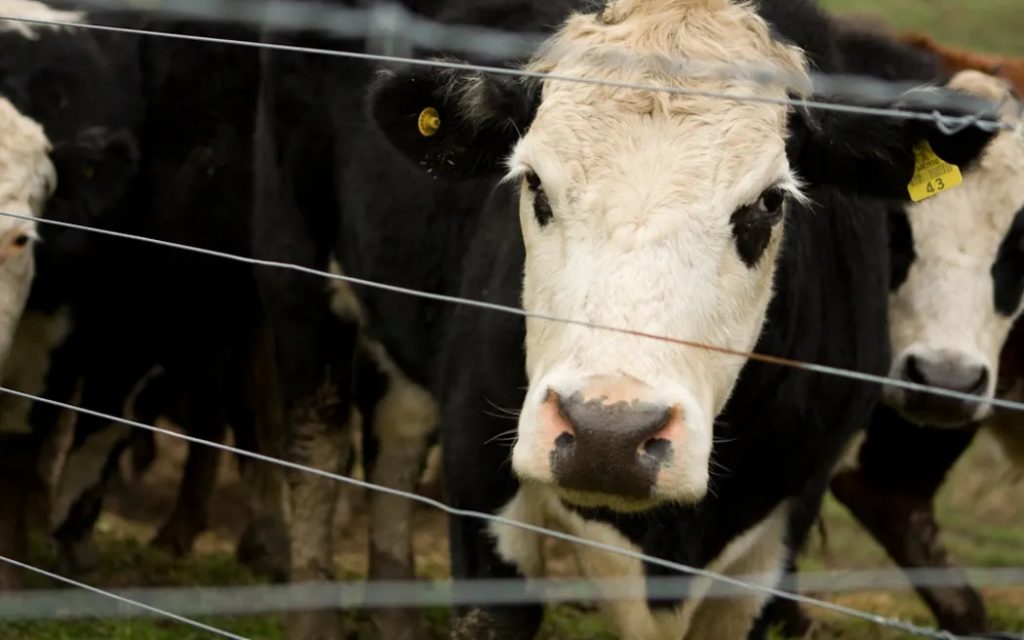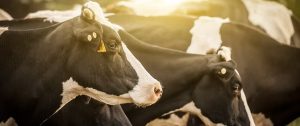
Europe is heading towards an emissions tax on dairy imports, a lawyer working on climate and sustainability for companies says.
The breadcrumbs were being laid by Denmark, DLA Piper partner Daniel Street said, which promised its own farmers it would pursue EU-wide emissions pricing on greenhouse gases such as methane from farming.
In return, Danish farmers agreed to a price on their agricultural emissions from 2030 and to carry out various environmental improvements.
EU-wide pricing of farm gases would pave the way for farming products to face an emissions price at the EU border, Street said.
The European Union was in the process of placing carbon border adjustment tariffs on imports of steel and other carbon-intensive materials including aluminium and electricity.
The adjustments were seen as a way to stop climate efforts at home being undercut by the import of cheaper, and dirtier equivalents of the same product.
The Trump administration in the US does not like the tariffs – and Street said it could retaliate with carbon tariffs of its own, despite the US retreating from climate action.
A number of things would need to happen before dairy and meat products would be caught, Street said.
“What you would need is Denmark to build up a political constituency within the European Union.
“It is not imminent, but the direction of travel is that at some point you could expect agriculture to be included.”
Matthew Cowie, a Partner in EY’s Climate Change and Sustainability Services team, agreed.
He said Australia, New Zealand and other countries had also considered one day deploying their own carbon border adjustments, and the EU regime was likely to become a blueprint for other countries.
New Zealand’s emissions price was about half the EU price, so there was potential for any goods made here to face an adjustment if they were caught.
The first products affected in Europe are steel, aluminium, fertiliser, hydrogen and electricity – nothing New Zealand exported large amounts of, Cowie said.
He said the quantities required in order to face a tariff were high enough that most New Zealand manufacturers of products would not be caught, even if they use aluminium or steel components from a country with no emissions price.
The EU was also simplifying the regime to catch fewer products, at least in the early stages.
“The products that have been identified are a subset of particularly emissions-intense products that are heavily traded internationally and can be moved into Europe easily.
“Basically what they are saying is… when you bring a products like steel in you need to tell us how much carbon was created in the creation of that steel and how much of a carbon price you paid during it’s production.”
Any tariffs were calculated after considering how the emissions compared to a European producer – and what emissions price was paid.
But it was what happened next to the regime that mattered most to New Zealand exporters.
Cowie said including agriculture “was probably the direction of travel” albeit with “a lot of uncertainty about the timeframe.”
The government scrapped plans for New Zealand farming gases to face an emissions price in 2025, and now said a price would be in place by 2030.
It was unclear how Europe’s regime would compare with New Zealand’s, with Denmark’s also due to start in 2030.
Cowie said – emissions price or not – any efforts New Zealand farmers make to lower their climate impact will put them in a good position to argue they should not be penalised at the border.
The two things that will determine any tariff are the emissions-per kilo – compared to European products – and what, if any, price farmers have paid for their emissions here.
Cowie said if farmers could reduce the emissions-intensity of their products, “broadly we will have a strong argument to say this is not something that should be a massive stick to hit us with in the future, because of what we’ve already done.”
While carbon tariffs might seem like problem for later, demands by the likes of Nestle and Mars to lower emissions from farming are here today, Cowie said, and probably the more pressing issue for farmer-exporters.
You can now read the most important #news on #eDairyNews #Whatsapp channels!!!
🇺🇸 eDairy News INGLÊS: https://whatsapp.com/channel/0029VaKsjzGDTkJyIN6hcP1K

























